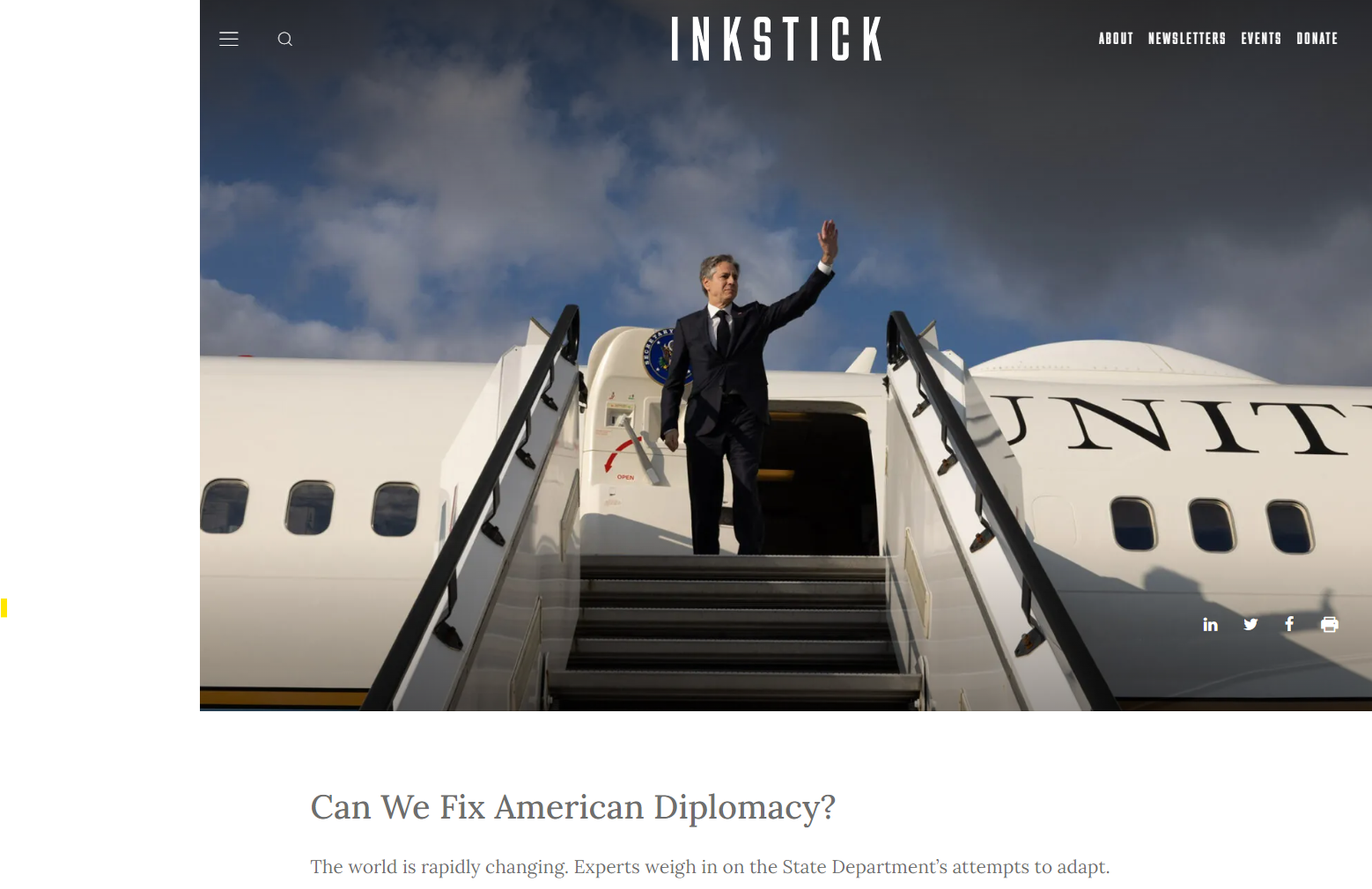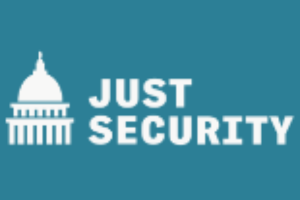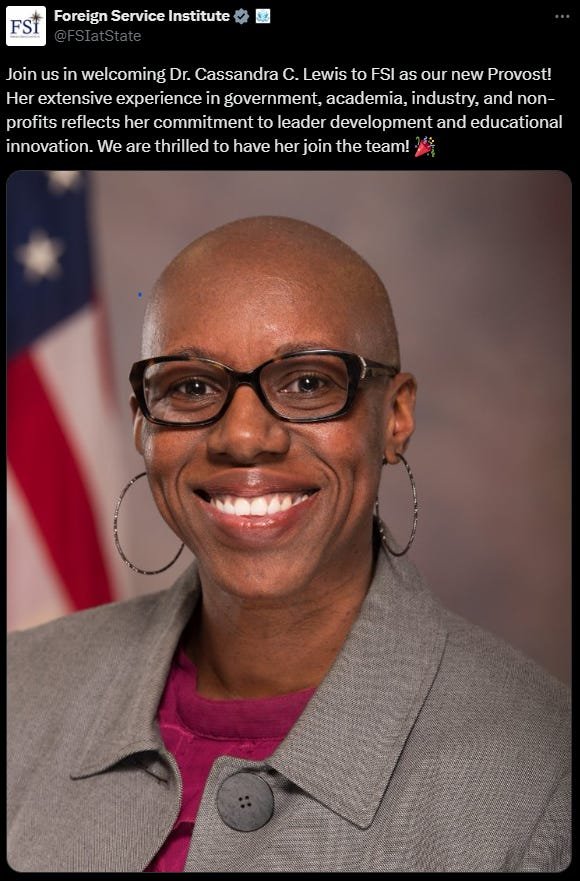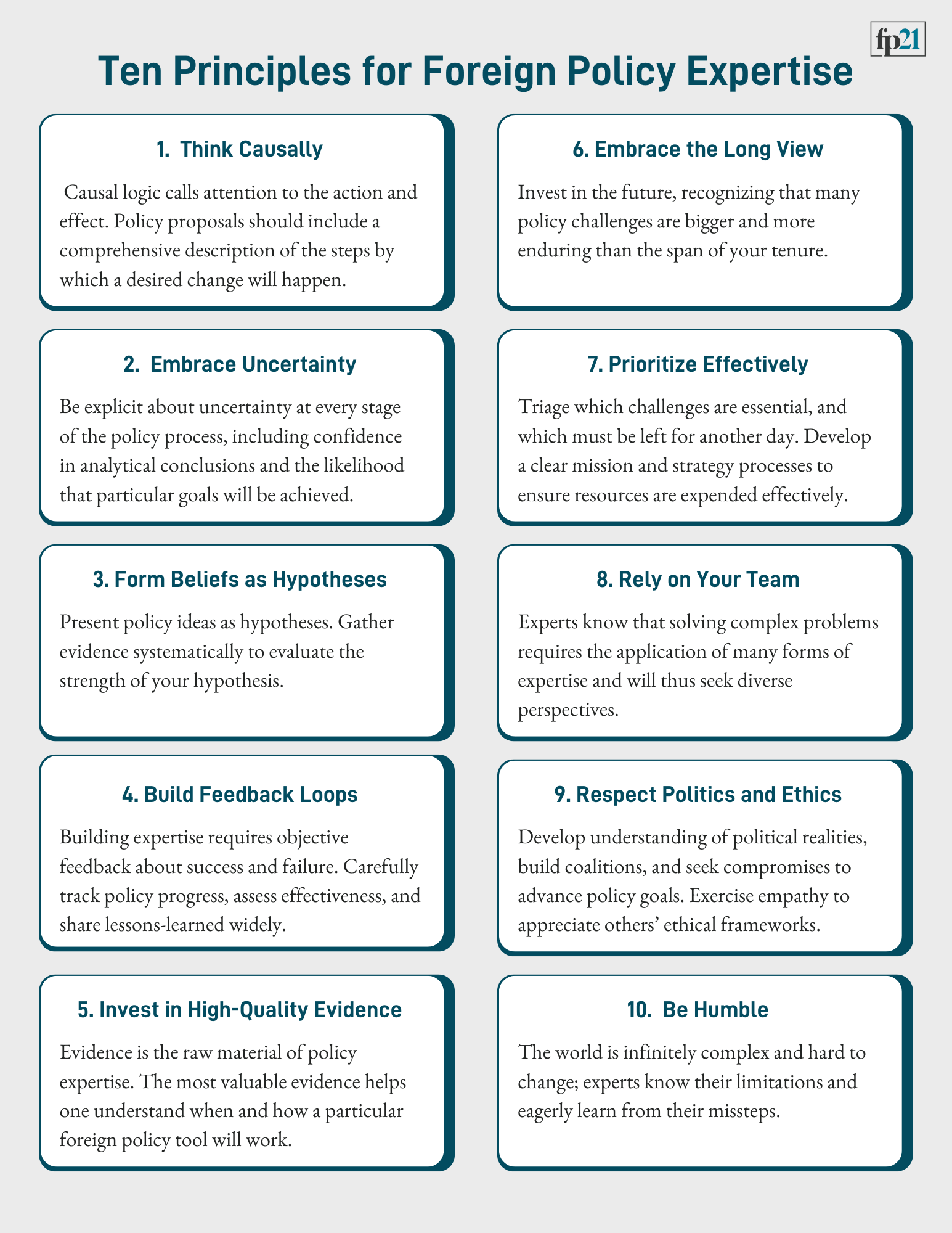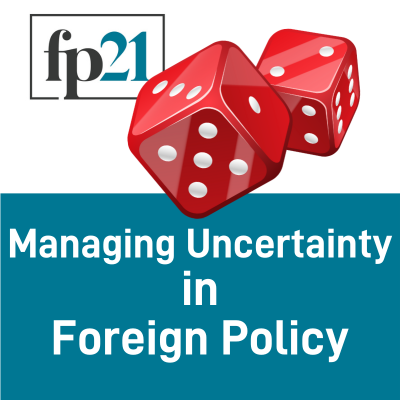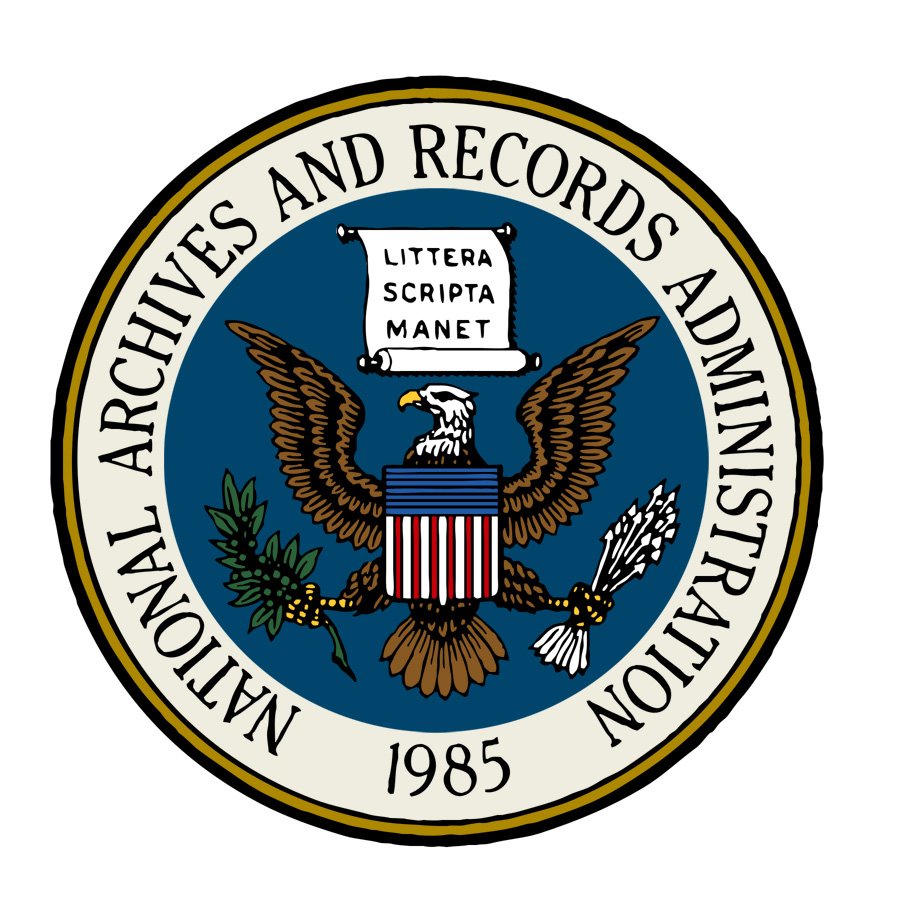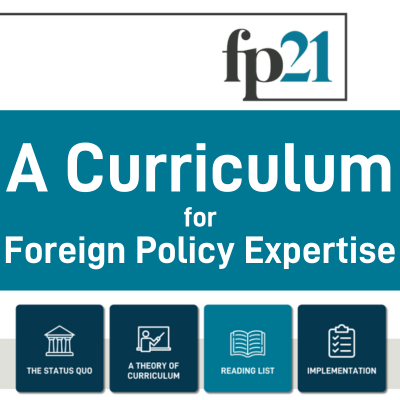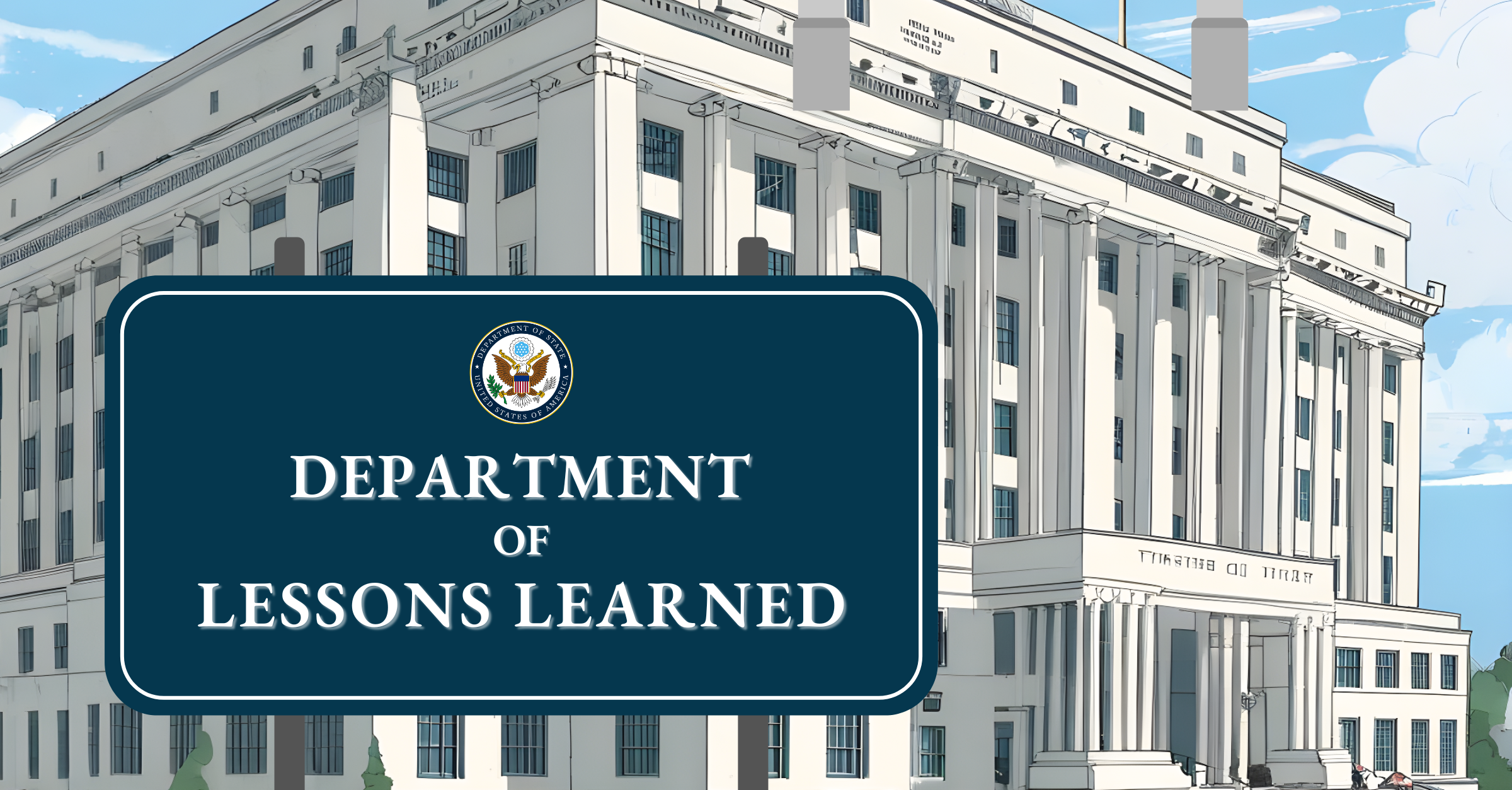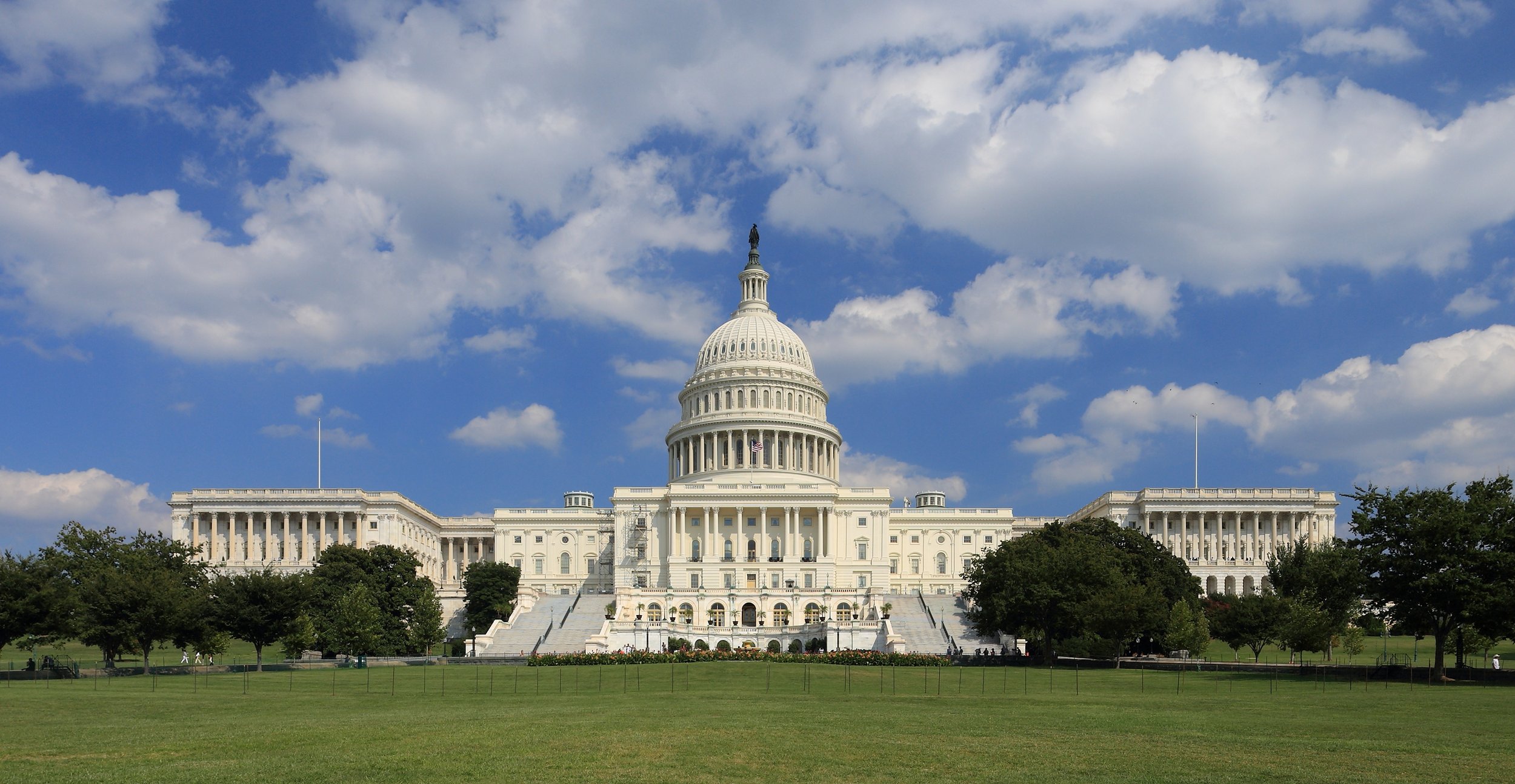Publications
fp21 is building a new culture of foreign policy. Explore our publications below.
Doctrine for Engineering Foreign Policy
Dan Spokojny: This article digs into the details of what a doctrine for policy engineering might look like, offering detailed recommendations on advance effective policy. It includes a one-page checklist that practitioners can use to support their own strategy processes.
Building tech capacity at State
Joel Burke: In our current time of unprecedented technological change, the federal government requires more technical expertise than ever before. The State Department can and should be a shining example of a well-run government agency — all it takes is the will to do so. Unfortunately, the State Department has not shown that it is up to the task when it comes to building, maintaining, and effectively utilizing technology products.
Improving Data Utilization in Diplomacy
Lula Chen: This article suggests four ways to improve the use of data and data integration into decision-making at the State Department: Identify key decisions where evidence from data is valuable; Identify a few, high-quality metrics and indicators that provide compelling evidence for a decision; Lower barriers to data access, and; Interpret data with subject matter experts.
Improving Risk Assessment Processes within the State Department: Lessons from Foreign Terrorist Organization Practices
Michael Becker: The process governing the Foreign Terrorist Organization (FTO) listing process contains a number of pathologies emblematic of broader challenges in the practice of American foreign policy. The current FTO process reflects outdated attitudes toward resource stewardship, deterrence, and risk assessment that pervade current American foreign policy.
Dan Spokojny on NPR
The Trump administration's push to downsize the federal government could hit the State Department next. Ambassadors have already been asked to look for ways to cut back at U.S. embassies around the world, and there is speculation that some embassies could be shut down or consolidated.
From Strategy to Action: Rethinking How the State Department Works
Dan Spokojny: Effective foreign policymaking does not merely spring from the Department’s wealth of knowledge and experience. While recent modernization efforts have rightly focused on helping the department develop, acquire, and retain expertise, that expertise needs an organizational culture that prioritizes action.
What We Mean When We Call Something an Intelligence Failure
Gary Gomez: When most people hear the words “intelligence failure,” they think of a surprise event that an intelligence service failed to predict. But what if that’s all wrong? To address these questions, this article critically reviews what we mean by intelligence failure and how the term is used and perceived in the public sphere.
Podcast: Dan Spokojny Joins Security Dilemma to Discuss Reforming American Diplomacy
John Allen Gay and A.J. Manuzzi interview Dan Spokojny, a former U.S. Foreign Service Officer and the founder of fp21, a think tank devoted to promoting more evidence and learning based foreign policy processes. This conversation discussed knowledge management, groupthink, U.S. policy processes, and efforts at State Department reform.
Dan Spokojny on NPR’s Morning Edition
fp21 CEO Dan Spokjojny is interviewed on NPR’s Morning Edition. The topic: As the transition to a new administration approaches, what is the likely impact on a decidedly nervous State Department? Secretary of State Antony Blinken is making a last-ditch effort to get more career ambassadors confirmed by the Senate. He's tried to rebuild a department gutted during the previous Trump administration. NPR's Michele Kelemen reports.
Can We Fix American Diplomacy?
Dan Spokojny: The quality of our institutions’ policymaking processes — the ability to turn ideas into action — ought to be an essential concern for grand strategists. Upgrading the U.S. Department of State's decision-making process may be the most impactful intervention to strengthen our national security. This was the thesis for a talk and article offered to The Stimson Center's Reimagining Grand Strategy event in September.
Congressional Commission to Reform the State Department
The new Congressional Commission on Reform and Modernization of the Department of State represents a rare bipartisan consensus: the State Department remains an essential asset for U.S. national security but needs revitalization. This article proposes four questions the Commission needs to consider to set itself on a successful path.
Advice for the Inaugural Provost of the Foreign Service Institute
Dr. Cassandra C. Lewis has been appointed the inaugural Provost for the US Department of State’s Foreign Service Institute. The new Provost will oversee the curriculum used to train America's diplomats. This article offers suggestions for the new provost can make the most of this opportunity.
Ten Principles for Foreign Policy Expertise
Dan Spokojny: Guided by a theory of expertise, this articles offers ten principles that are central to the development and operationalization of expertise at the US State Department. They include embracing uncertainty, building feedback loops, investing in high quality evidence, relying on one's team, and more.
How to Embrace Uncertainty in Foreign Policy
Dan Spokojny: Managing uncertainty is a skill. It requires specialized techniques central to healthy decision-making. But when our policymakers ignore uncertainty in favor of instinct-driven assertions, they pass up opportunities to make it a little bit easier. Managing uncertainty should be a core skill for every aspiring foreign policy expert. This article is a primer on understanding how to manage uncertainty effectively.
State Department FFRDC: Public Comment for the Federal Register
Dan Spokojny: The May 17 announcement that the State Department will sponsor its first research and development center is “a huge win for diplomacy.” The State Department invited public comment about its proposal, so fp21 and our partners mobilized to respond and help push this proposal forward.
A Curriculum for Foreign Policy Expertise
Dan Spokojny: What training is required to become an expert in foreign policy Foreign policy is unique among fields of public policy in that there are no educational requirements, no body of tradecraft, and no standard training regimens to prepare its leaders. This article explores four categories of knowledge that all policymakers should know.
What is Expertise? Let's ask the experts.
Dan Spokojny: It's vital we build a strong foundation for understanding expertise in foreign policy. Let's examine scholarship from cognitive psychology, political science, and other fields of research.
Making “Lessons Learned” Stick
Dan Spokojny: How many wars could be prevented, and how many lives saved, if only we could inject better knowledge into the bloodstream of policymaking process? Here are five observations based upon my study of lessons learned programs.
Congress Passes State Department Authorization for Third Year in a Row
Dan Spokojny: The Department of State Authorization Act of 2024 was passed by Congress and signed into law, marking the third year in a row diplomacy gets a facelift. Legislators took aim at many of the issues fp21 has prioritized in recent years, continuing to press the State Department to modernize in the face of a rapidly changing international environment.
Teaching Data-Driven Decision-Making
Dan Spokojny: Last week Dan finished teaching a course on “Data-Driven Decision-Making” for a White House-led initiative called the U.S.-ASEAN Institute for Rising Leaders at the Johns Hopkins School of Advanced International Studies. The top-line argument for the course was to use the best available evidence to make the best possible decisions.









